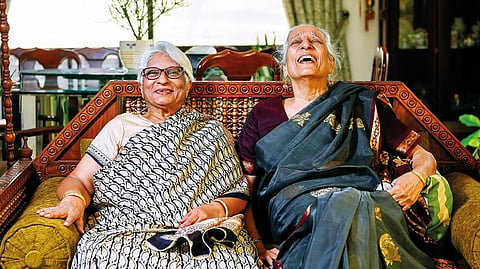They went from pranksters to school co-founders: A Sharjah duo’s pursuit of teaching excellence
As Ibn Seena School in Sharjah celebrates its 42nd anniversary this year, Tessy Koshy meets the septuagenarian founders Gabrielle Dube and Fatima Mamnoon to find out how they are moulding young minds
Last updated:
6 MIN READ

Sign up for the Daily Briefing
Get the latest news and updates straight to your inbox
Up Next




